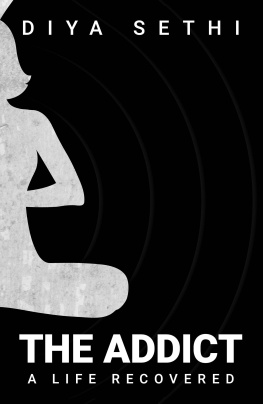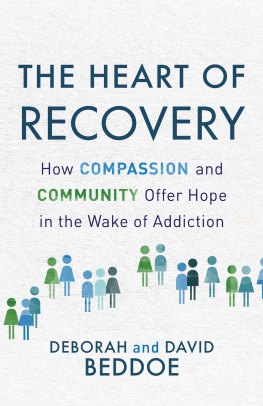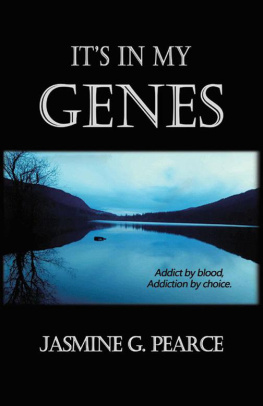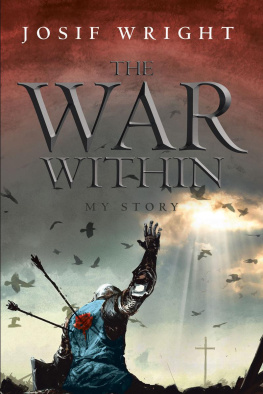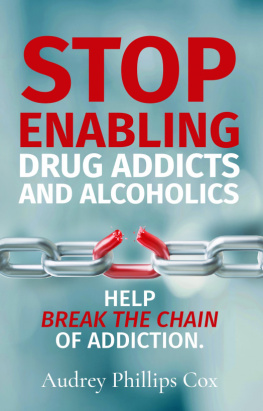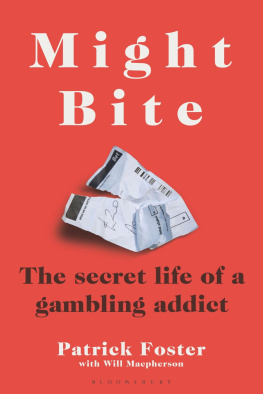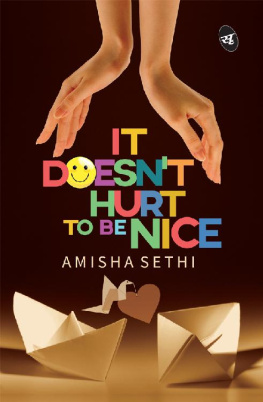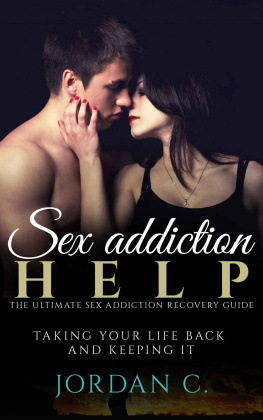I dedicate this story to my family my mother, father and
brother from whom I hope to find forgiveness and respect;
their forgiveness was never denied me, it was I who could
not take it Their respect I hope to earn from this
writing of my story.
Contents
Alas for those that never sing,
But die with all their music in them
Oliver Wendell Holmes
As I put pen to paper, I can feel it again: a fierce pain I was once unable to define a pain that diseased me, eroded every part of me, a pain I now see mirrored, magnified, distorted or disguised in so many different people But I found my own way and I continue to do so each and every day.
This is the story of a child, me, a child who was rejected, ridiculed, hurt and humiliated. And she escaped; she became someone else, I, someone to whom she gave the right to damage, deform and very nearly destroy me a right that was never mine to give.
I am thirty-nine years old and I never thought I would make it this far. For a long time I never wanted to make it this far, but I did, at the end of a long and treacherous road that brought me back to myself, to who I am and to the life that was meant to be mine.
I met me again at the age of twenty-six we had been estranged for thirteen years, and after another thirteen years of a life lived beyond my wildest dreams, in which I became my own best friend and guide, I know it is time to tell my story, unrestrained and unadulterated.
I have been told, frequently, that I should write; not become a writer, but just write something. I never really understood the suggestion. I had, at best, written amateur pieces on food and cooking, and a few unpublished restaurant reviews. The former received praise for the human character I brought to food, not a unique style in its genre, but perhaps the mere novelty of my being a somewhat erudite person ignited the soft applause.
The latter were sumptuously devoured for their scathing descriptions and brutal depictions, an even more common, and worse, easy way to win a few laughs. It is insidious how compelling humour is at the expense of someone or something else.
But to really write something? I was confused: if not on food, a subject in which I have some kind of credibility by virtue of being a trained chef in possession of experience, passion and knowledge, then, I asked myself, what could I possibly write on with the very same ingredients?
I am not an imaginative person, to be able to invent a story. Even if I chose to represent reality, I am shy in the matter of romance and the intricate illustration of intimacy, which is what sells such stories. And all that is underpinned by the use of technology is little understood by me yet another enormous range of ideas rendered inaccessible to my wandering mind. So what could I possibly write on? The answer: my life.
All too abruptly I found my high self-confidence and low self-esteem go into battle, culminating in the question: who could possibly want to read about my life?
After much deliberation, I answered the question with what I would describe as a retiring, rather than assertive, self-confidence: I found relevance in a candid recitation of twenty-six years of my life to the lives of others. And so I thought, why not? I had all the essential elements, except in this case, the expression of passion has been replaced by raw pain, and my life experiences documented without detachment.
I was sixteen when I realized I was sick. And I was high, so high as I virtually floated down the corridor of my high school that day in the United Arab Emirates. Even the scorching heat could not penetrate the oblivion borne of malignant malnourishment, which I was about to diagnose. Yet again, I hadnt eaten a meal in days, and if I ingested anything at all, it was expelled through a merciless fit of vomiting I induced, until acid bile coated my mouth and corroborated the emptying of my digestive tract.
It was very sudden when it hit, as, I imagine, does a stealth missile, a fear which strangled my mind and crudely extracted me from my cloud into an unwanted reality I was not high. I was weak, sick, and worse still, I had made myself sick. No, shouted one of the many voices in my head above the incessant chatter as I staggered into sitting position on a chair in an empty classroom, no, you didnt do this to yourself.
I felt possessed, and it was within the fraction of a second that I fleetingly met my other person, the one who had made me sick, the one who had plunged me into an eating disorder known as anorexia-bulimia nervosa.
I was sixteen years old and I was an anorexic what I didnt know then was that an anorexic is an addict, and an addict can only survive in hiding, in the denial of sickness and on a bed of lies. Much like a fungus, the addict grows and multiplies its forms and manifestations in an isolated environment, both emotionally and physically unhygienic.
It had begun in southern Africa when I first encountered racist segregation and in my hapless efforts to circumvent it, I had fallen victim to savage discrimination. I deluded myself into thinking I would be the exception to the unwritten rule, dismissing any endeavours by the coloured to mingle with the white Africans. But very soon I realized I was not welcome and I was not wanted.
In the little world I inhabited, the kind of world we all define in the attempt to be masters of our lives, I lost control. Gradually I began to develop a new person within myself, one who would live in an imaginary world I dominated, a world in which I became all-powerful over my own body; I assumed illusory control of how much sustenance I denied it, how cruelly I played with it and how severely I injured it what I didnt predict was that I was giving birth to a monster who would, in turn, punish me.
As I wilted on that chair in the classroom, I realized I had to protect myself from myself; I had to reveal myself to another person. Somewhere in my subconscious, I knew I needed help to expose and exterminate my self-made other. The day I told that person was the day I began my journey of recovery on a road less travelled; it was a road which meandered through a fascinating study of addiction and an examination of the human psyche through my own experience of life. I abandoned all documented theory, lectures and diktats by those professionals who preach avoidance, encourage a separationist lifestyle and ultimately instill fear.
During the course of my recovery, I wrote myself the following note; it was a reminder to keep going and to find my own way:
It is to be mourned, the fact that, today, living is considered a form of art which requires teaching; even worse, it might not be absolutist to say that to ensure its own survival, this kind of instruction encourages human beings to detect, if not actively search for, dissatisfaction with themselves and their lives.
There does exist learning that is not a pupil of teaching that which does the process of discovery access. Teaching not only pre-empts this but is also limited by the use of an intellectual medium that impairs the functioning of the senses.
The pupil must object, the objection carefully camouflaged as questions to which the answers are generously provided within their own framework: Should the art of living not be derived from the act of living? Is it not a form that shapes itself only in the experience of living?
The pupil will then realize there is something absurd in the measurement of a successful life that relies on an individuals overt declaration of his or her perceived state of being; there is a specific vocabulary used in which there are words such as peace and distress, happiness and misery, each varying greatly both in explanation and expression the declaration itself defines and imprisons, it often instills the fear of loss of a state of being, or the desperation to attain another state of being. It does not promote reflection and self-discovery; it magnifies dissent within oneself.
Next page
